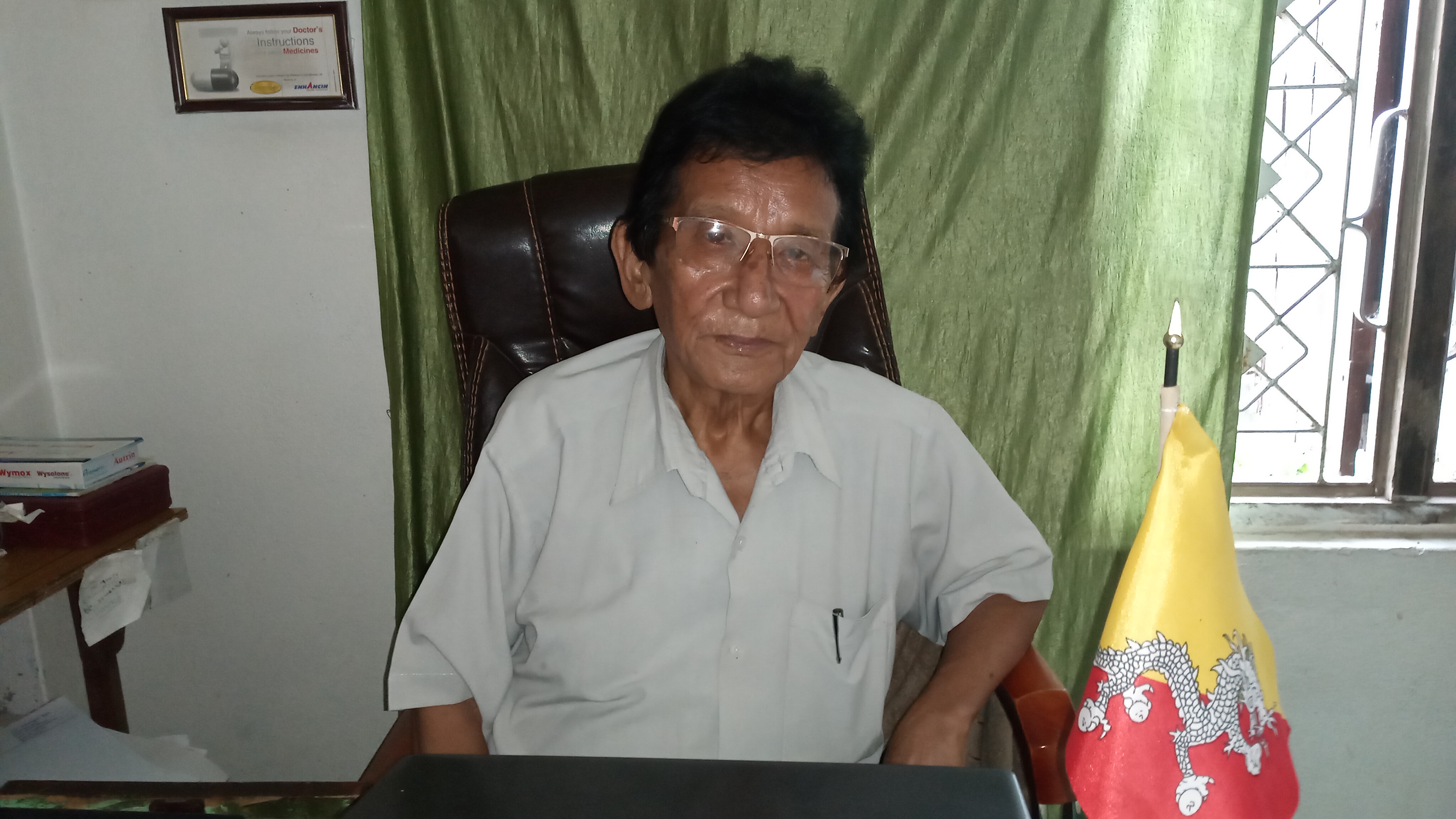‘My body is weak, but my struggle to return to homeland is strong as ever’

By Tika Ram Upreti, Jhapa, Sept. 6: Three decades ago, Dr. Bhampa Rai had black hair and his mouth was full of teeth. All he had then was zeal and determination to do whatever he wanted to do.
Dr. Rai, a Bhutanese refugee leader and chairman of the Bhutanese Refugee Repatriation Committee (BRRRC), was 39 years old physician of the Bhutanese Royal family when he was expelled from Bhutan 33 years ago.
He was among around 150,000 Bhutanese citizens of Nepali origin expelled just because he spoke out for their human and linguistic rights.
When he was in Bhutan, Dr. Rai was a trusted physician of the royal family.
After he fled Bhutan and came to Nepal, Dr. Rai continued to fight on behalf of all the expelled Bhutanese people.
Since then, he had been leading various movements in favour of the repatriation of the Bhutanese refugees.
Although he could not go back to Bhutan, he is not tired of raising his voice for the rights of the Bhutanese refugees.
“My body is getting weaker with my growing age. But my struggle to return home has not weakened yet,” Dr. Rai said.
His black hair has now turned grey and his face is wrinkled. But these physical changes have nothing to do with his fight for the rights of the Bhutanese refugees.
As a refugee in Nepal, he treated most of the Bhutanese refugees for free of cost, Dr. Rai said, adding that since the refugees did not have money, they used to visit his clinic for treatment.
Most of the refugees have now left the refugee camps and resettled in third countries. But Dr. Rai is still in the camp. He has been living a lonely life after the death of his parents and wife. Even in such a situation, he has been raising his voice for the rights of the refugees.
Bhutanese Refugees were living at seven different camps in Jhapa and Morang district since they arrived in Nepal in the early 1990s.
Life in the refugee camp was very difficult. Many Bhutanese refugees are now resettling in different eight countries around the world.
But Dr. Rai has been strongly raising his voice that the right of the refugees to return to their homeland should be ensured, no matter where they have resettled.
As soon as the new government is formed in Nepal, BRRRC sent a memorandum to Prime Minister Sher Bahadur Deuba, asking the government to lobby to ensure their rights to settle back those refugees, who wanted to return to their homeland.
They had left their homes and farmland behind in Bhutan, and they still want to return to their place, Dr. Rai said.
Similarly, the government of Nepal has also started providing them an opportunity to study in schools and began vital registration (birth, death, marriage and others) of the Bhutanese refugees on the basis of the identity of refugees.
Currently, there are around 6,005 refugees living in Beldangi of Jhapa and Pathari Sanischare Camp of Morang district.
Recent News

Do not make expressions casting dout on election: EC
14 Apr, 2022
CM Bhatta says may New Year 2079 BS inspire positive thinking
14 Apr, 2022
Three new cases, 44 recoveries in 24 hours
14 Apr, 2022
689 climbers of 84 teams so far acquire permits for climbing various peaks this spring season
14 Apr, 2022
How the rising cost of living crisis is impacting Nepal
14 Apr, 2022
US military confirms an interstellar meteor collided with Earth
14 Apr, 2022
Valneva Covid vaccine approved for use in UK
14 Apr, 2022
Chair Prachanda highlights need of unity among Maoist, Communist forces
14 Apr, 2022
Ranbir Kapoor and Alia Bhatt: Bollywood toasts star couple on wedding
14 Apr, 2022
President Bhandari confers decorations (Photo Feature)
14 Apr, 2022










